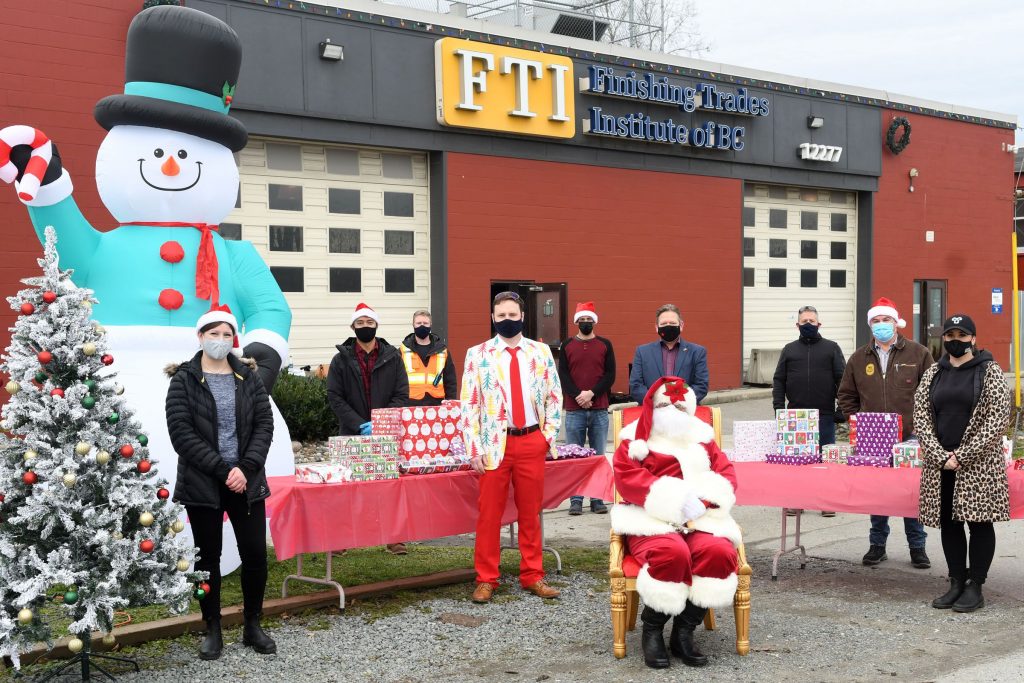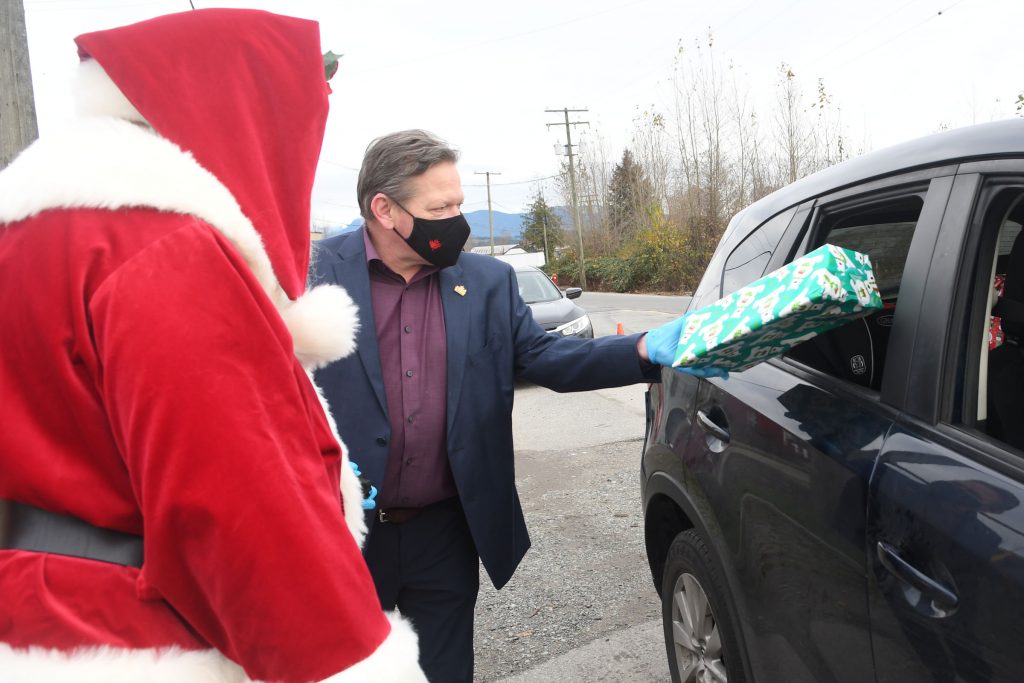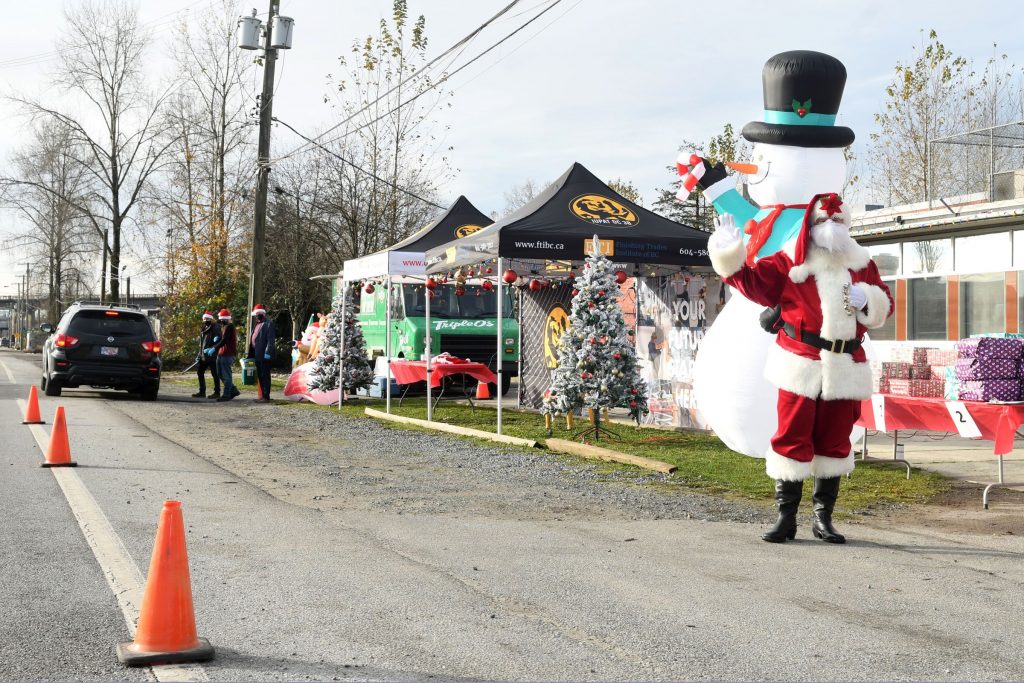Temporary Foreign Worker Speaks Out About Wage Theft, Rights Violations on Government Projects in BC
Painters’ union fights to recoup tens of thousands of dollars in stolen wages, shine light on rampant abuse of government program
Ariefs traveled from Indonesia to Canada in search of new opportunities. He learned about the job through a YouTube recruitment video posted by a supervisor at a painting company based in Vancouver, B.C. The job promised good pay along with employer-provided food and housing. Instead, he has experienced over a year of wage theft, exploitative financial claw backs, and an atmosphere of intimidation that included threats of deportation.
Despite facing serious repercussions, Ariefs is voicing concerns on behalf of himself and several other temporary foreign workers who are employed as construction painters on major hospital redevelopment projects such as Royal Columbian Hospital, and Lions Gate Hospital in Metro Vancouver. All are on closed work permits as part of the controversial Temporary Foreign Worker Program (TFWP) which is facing increasing scrutiny.
“My job offer stated that the salary for the position was $23 per hour,” Ariefs shared. “After accepting the job, the employer told me this was just to show the government compliance and that I’d only be making $650 bi-weekly.” Ariefs was disappointed, but with the promise of increased wages in the future and the opportunity to work in Canada, he hoped the employer would honor its commitment.
“I felt deceived,” he added. “I either had to work under this arrangement or go back home.”
Rampant rights violations
Despite being promised free accommodations, Ariefs and his coworkers are compelled to pay $1,055 from each paycheck back to the employer via e-transfer or cash. With the other employees residing in one employer-owned house, they collectively pay $18,990 monthly. If there are three paychecks in a month, this amount increases to $28,485. Employer-owned shelter is a common practice for workers on TFWP permits and contributes to a dangerous power imbalance that makes speaking out difficult for workers.
Ariefs and his coworkers are also facing wage theft. They frequently put in nine-hour shifts yet receive compensation for only eight of those hours. They’ve been compelled to work five unpaid hours most Saturdays and at times are expected to clean company cars on their one day off. This typically results in an average of 10 hours of unpaid work each week.
Ariefs’ story is an all-too-common occurrence under Canada’s exploding temporary worker regime. Unscrupulous employers use the TFWP, not as a last resort to hire workers when Canadians aren’t available, but as a business model premised on low wages.
According to Dan Jajic, Business Manager with the International Union of Painters and Allied Trades, District Council 38 (IUPAT DC38), dishonest construction companies use the TFWP so that they can submit lower-cost bids and steal contracts away from companies who pay living wages to Canadians.
“The rampant abuse of the temporary foreign worker program is deplorable. It not only hurts foreign workers; it hurts Canadian workers, companies and our apprenticeship system too,” said Jajic. “The way Ariefs and his colleagues have been treated is heartbreaking; it’s also against the law. These bad actors in the industry must be held accountable and stripped of the right to use the program.”
Ariefs’s situation highlights the dangers of the closed-permitting system which ties most low-wage temporary foreign workers to a single employer thereby restricting their ability to leave bad employers. “The system is stacked against these workers,” Jajic added. “We’ve provided full-time, steady employment to workers only to find that they prefer employers offering a closed permit, as it boosts their chances for permanent residency. That’s a recipe for employer impunity and a clear sign of a broken immigration system.”
Recent changes announced by the Federal government do not end closed permitting and exempt the construction sector from reforms all together.
Union fights back
Through an organizing campaign, IUPAT DC 38 successfully certified the employer and will commence negotiating a first collective agreement to improve wages and working conditions for all employees. Leveraging the trust of the workforce, IUPAT DC 38 managed to recover over $200,000 in unpaid wages for the workers. However, the Union believes that this represents less than half of the total owed to them. At the time of publication, none of the money taken for “rent” and to illegally “pay back debts” has been refunded.
IUPAT DC38 has successfully helped two workers change their temporary work permits from closed to open using the government’s Open Work Permit for Vulnerable Workers program. They are assisting others who wish to apply as the situation continues to be investigated. Those who have successfully applied now work for a unionized employer with an excellent reputation, a strong collective agreement, and access to a comprehensive apprenticeship program.
With the help of the Union, Ariefs witnessed a shift in the control that his employer once had over him: “I see that the employer feels they have lost power over us; they no longer raise their voice like before. They seem troubled now.” Ariefs adds, “It feels great; I feel we’re equal now. I feel empowered.”
Major reforms to immigration system needed
IUPAT DC38 has released new research on the scale of temporary foreign worker involvement in the B.C. labour market. According to government data, the number of temporary work permits has been increasing across the finishing trades over the past five years. In 2023, temporary work permits accounted for a stunning 15.1% per cent of the glazier workforce in B.C., 7.6% of the plasterers, drywall installers and finishers and lathers, and 3.3% of the painters and decorators.
Dan Jajic and twenty other BC Building Trades unions are urging the suspension of the TFWP until an independent audit is done along with other systemic reforms to the immigration system. IUPAT DC38 hope that by highlighting the exploitation, there will be regular audits of employers, increased fines, and longer bans for these unethical contractors.
*To protect the identity of Ariefs, they are using a pseudonym
Media Contact
Jonathan Sas
C: 905-808-4383E:
Jonathan.sas@gmail.com






Recent Comments